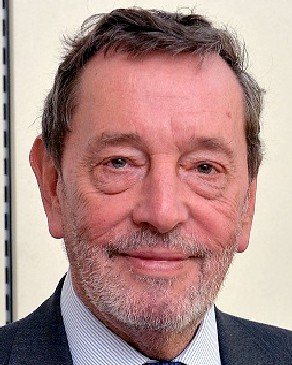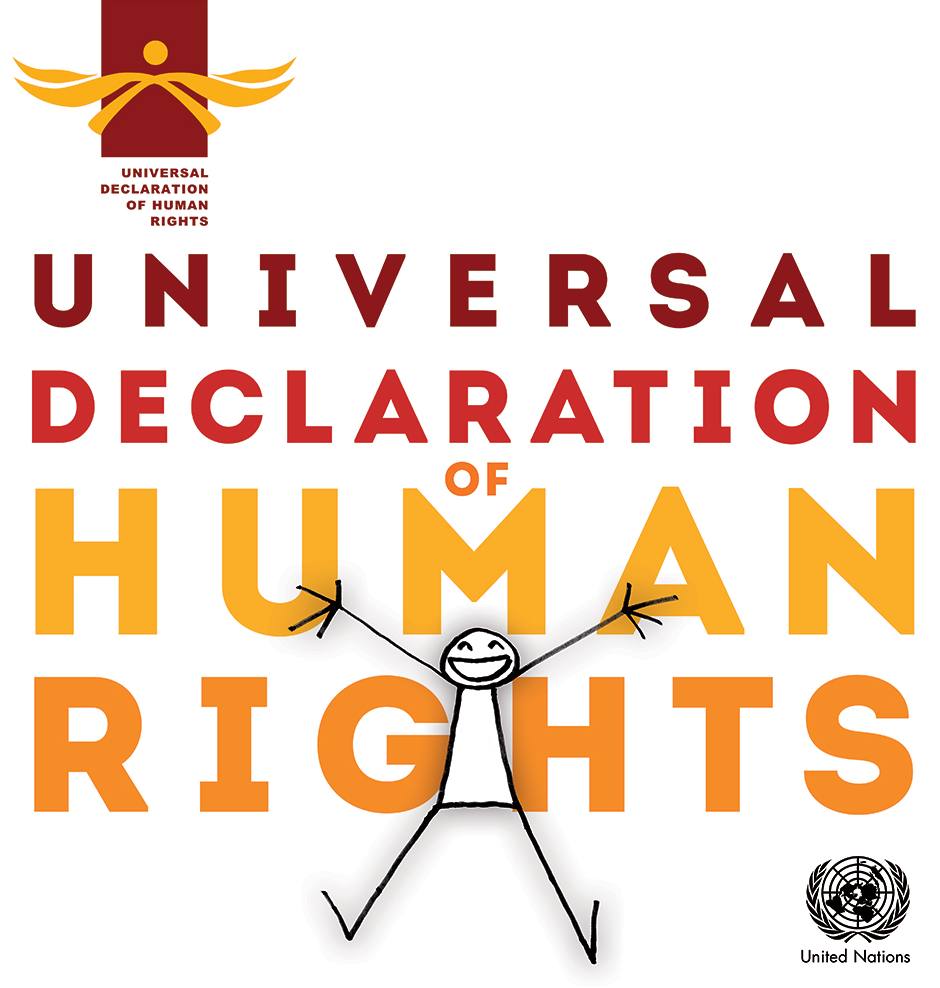|

Adopted and proclaimed by General Assembly
resolution 217 A (III) of 10 December 1948
Article 11.
(1) Everyone charged with a penal offence has the right to be
presumed innocent until proved guilty according to law in a public
trial at which he has had all the guarantees necessary for his defence.
(2) No one shall be held guilty of any penal offence on account of
any act or omission which did not constitute a penal offence, under
national or international law, at the time when it was committed. Nor
shall a heavier penalty be imposed than the one that was applicable at
the time the penal offence was committed.
UK
CASE IN POINT UNDER REVIEW
In
the case of Nelson Kruschandl Vs the United Kingdom (Sussex Police and
Wealden District Council) he with a series of alleged sexual offences in
2006 under the Sexual
Offences Act 2003. A trial took place in February of 2008.
The
Sexual
Offences Act 2003 provides that a person accused of a sexual offence
is presumed to be guilty rather than innocent at the outset, contrary to
Article 11 of the Universal Declaration of Human
Rights.
The
2003 statute was enacted by the British Government under the guidance of David
Blunkett, a Member
of Parliament and the then Home Secretary. Mr Blunkett's agenda was to
increase the number of convictions regarding sexual offences - also to
increase sentences to the point where thousands of Indeterminate Public
Protection (IPP) prisoners are being detained many times over their
tariff. The 2003 Act is truly is an abomination of a legal document that
is blind to the consequences of the eugenics approach to bending of the
rules of law to, in-effect, massage the convictions statistics to make
himself and his Labour
Government under Tony
Blair more popular to win votes.
David
Blunkett (now Lord) must have known that the reversal of the duty
imposed on him by Article 11, would have required additional funds for any
half decent defence to be mounted, but there was no increase in Legal
Aid funding for those accused of sexual
charges.
In
addition the word went out to Single
Judges that only a very few appeals would be allowed with a similar
direction to the Criminal
Cases Review Commission. There would be no honours
for anyone bucking this agenda. Hence, with no right of appeal under
British law, those wrongly convicted would stay convicted indefinitely.
This is handy for councils and police who may have been caught conspiring
to pervert the cause of justice, as happened to be the case with Mr
Kruschandl were he reported crimes, accusing Wealden
District Council of lying to Inspector
Raymond Dannreuther about the history of a generation station in a Petition
in 1997. This was of course the truth, but Sussex police were not prepared
to investigate the malfeasance
in public office, a common law crime that carries a maximum life
sentence, where they had granted immunity from prosecution to Wealden's
officers, where it is alleged that a masonic link existed between Sussex
police and Wealden, because of known associations with Tyrian
Lodge, a masons meeting place in
South Street, Eastbourne, just 100 yards from the then police station in
Grove Road. The father in law of the assistant district planning officer, Ian
Kay and Councillor Brian
West were both former Grand Masters at this Lodge. A coincidence
maybe, but then Councillor West was on the planning committee in the 1990s
and voted for enforcement against Kruschandl, even though he knew that the
history the officers were giving to the area plans south committee was
untrue. He knew that the generating buildings were genuine, but said
nothing to prevent that injustice. Indeed, he was party to the injustice.
Another
potential conflict of interest is that Mr Kruschandl was in litigation
with Don
Wales, who attended Eastbourne College. Where Kruschandl was claiming
monies owed by the grandson of Sir
Malcolm Campbell in an amount of £62,000 as to non payment for
services in connection with a land
speed record project, it could be that the police and council took
sides unofficially. We understand that Wealden supplied Mr Wales with a
dossier of information, hoping that he would succeed in litigation that
would wipe out their adversary. Don
Wales had either friendships or contacts in the membership
of Wealden District Council.
When Wales failed to win his case, a stitch up by Sussex
police would kill two birds with one
stone. All they had to do was wait for an opportunity.
When
Kruschandl called off an engagement to the daughter of a cabinet member at
Wealden, it appears that this was the opportunity they were waiting for.
All they had to do was fuel the bad feelings from the break up of the
relationship and persuade (groom) the teenage daughter who was caught up
in the middle of the break up to go along with the assertions of a friend
that there had been inappropriate sexual contact, where all the evidence
pointed in the other direction. But that did not stop Gordon Staker. He
appears to have allowed two weeks for the girl, her mother and grandmother
(both social workers well versed in such issues) to elapse before taking a
statement. Staker was also prepared to close his eyes to a video
collection belonging to the claimant about The Bill and Casualty episodes,
and her computer,
where if they had bothered to look (and probably did) they would have seen
that this girl was surfing the web on dating sites and taking pictures of
her brothers genitals - and that her video collection was largely about
this subject, but that she was claiming she would not have know sexual
contact with her former stepfather would have been wrong. These were
pertinent facts that the Jury should have known about.
They
would also have seen entirely
innocent emails from the girl to Kruschandl that they did not want any
Jury to see, let alone the fact that the victims computers evidence the
fact that he was not looking at inappropriate pictures or otherwise acting
in a manner that one would have expected, had the allegations been true.
Indeed, the Jury would have found out that he was a planning activist
who'd won a number of cases against Wealden. They would also have found
out about the Petition and the litigation with Don
Wales. This was inconvenient to the case, so Gordon
Staker and James Hookway turned a
blind eye. We believe that such dereliction of their duty of care to the
accused should warrant a prosecution of the investigating officers.
It
gets worse. Forensic evidence was wrongly fed to the Jury, suggesting that
naturally occurring marks on the girls hymen were not natural. This was
another lie. They are natural, but even worse than that, the girls hymen
was closed, indicating virginity, where she was claiming multiple
penetrations that equals rape. Judge
Cedric Joseph told the Jury that there could have been 30 to 40 such
sexual episodes. If there had been any truth at all in the statement, the
girl would have had a gaping hymen, not been tightly closed. For this
reason we suspect masonic connections between the Judge and the Crown
Prosecution Service.
If
this is the level of Human Rights abuses in just two cases, we wonder if
the United Kingdom should be allowed to remain a member of the United
Nations ?

OTHER
CASE DEFICIENCIES
Sussex
Police failed to secure the crime scene ..... To be continued
....
UNIVERSAL
DECLARATION OF HUMAN RIGHTS
EUROPEAN CONVENTION OF HUMAN RIGHTS

LEAD
CASE: DISCRIMINATION & EFFECTIVE REMEDY - In the case of Nelson
Kruschandl v Sussex Police and Wealden
District Council, The British Governments of the United
Kingdom has/have been in violation of several of the above
articles since 1982, with another milestone passed in 1987
and a further major obstacle to personal development and potential in
2008 with the employment of the Sexual
Offences Act 2003. Since that time Articles
1 and 8 of the UN
Universal Declaration have been violated in that in Britain Article
13 of European
Convention has been deliberately omitted from the Human
Rights Act 1998 - for the express purpose of undermining, holding
back and preventing the personal development potential of certain
citizens who challenge the present system whereby the ordinary man is
a slave to financial
institutions, the landed
gentry and the councils, courts and reviewers
who serve them in a modern Britain with lesser overtly exploitive
opportunities than their Empire days.
In
furtherance of Her Majesty Queen
Elizabeth Windsor's Government'
objectives, Legal
Aid funding to be able to mount any kind of fully argued trial
defence or appeal against wrongful conviction, has been trimmed to the
bone - such as to have the appearance of a functional justice system -
but that in fact the British justice system is fatally flawed on
several counts.
(other
language versions)
|


